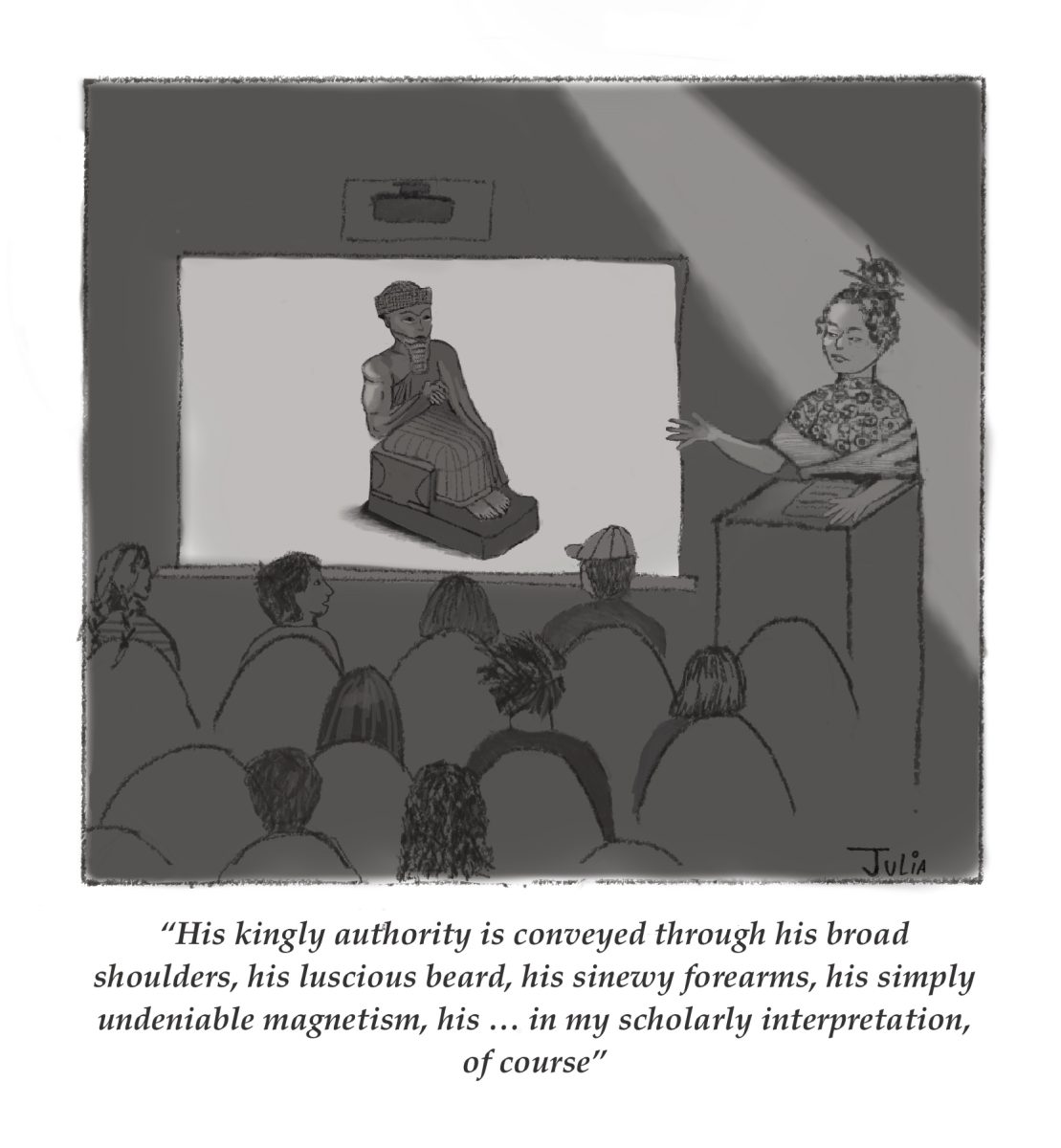During the first week of classes, I watched and volunteered as hundreds of my classmates lined up outside Paresky to sign the Honor Code and enjoy slices of watermelon. In those moments, I felt like Williams had rediscovered something vital: integrity as a shared promise.
For generations, students at the College didn’t just follow the Honor Code — we enforced it, too. Peers elected by their classmates decided cases brought before the Honor and Discipline Committee, which gave students real ownership of the system and reinforced a culture where accountability came from peers rather than authority. Yet even as I celebrated our renewed commitment to integrity during the first week, I felt the weight of a quieter shift. This year, the College rebuilt the honor system, giving faculty a vote in hearings and replacing student elections with committee appointments. As a result, student voices — once central to the system — have been sidelined, replaced by growing faculty control. What was designed as a peer-driven process of accountability is now compromised, eroding both the legitimacy of the Honor Code and the trust that students place in it.
Over the past year, the Honor and Discipline Committee was dissolved and replaced by the Committee on Academic Integrity (CAI). Most of these reforms were commendable. Faculty and students may now speak openly about suspected violations, allowing for teachable conversations instead of automatic hearings. Instructors can impose modest sanctions for first-time or minor cases rather than sending every alleged violation to a full Honor and Discipline Committee hearing: a process that faculty criticized as overly judicial and slow. Programming around the Honor Code is finally taking root, from first-year advising to public signing ceremonies. These improvements show a genuine effort to foster a culture of honesty.
But the new CAI committee diverges from the erstwhile Honor and Discipline Committee in two defining respects. Previously, students elected their representatives directly, and those students alone decided outcomes. Now, student members are appointed by a small committee of faculty, members of the Dean’s office, and current CAI representatives. And for the first time, faculty vote alongside students during hearings. Where once students held sole responsibility for adjudicating academic integrity, their role is now narrower and shared with non-students. This matters profoundly: The committee’s decisions can determine whether a student receives a fine, fails a course, or receives other serious academic penalties, making it among the most consequential bodies at the College.
Under the previous Honor and Discipline Committee constitution, major changes to the Honor Code could only be made through a student referendum, per its bylaws. A voting turnout of two-thirds of the student body was stipulated, as well as two-thirds support among those who voted. It is true that turnout in recent elections had been below that threshold, but that does not constitute grounds to abandon the rule as recent reforms did. Had the College Ad Hoc Committee on Academic Integrity launched a larger campaign to publicize the proposals to reform the honor system before holding a referendum vote, change could have been enacted by students. Instead, the new system was installed administratively, bypassing a democratic safeguard that has protected student ownership of the honor process for generations. However well-intentioned, that decision undercuts the legitimacy of a code that depends on our consent and violates the bylaws formally adopted by the College.
I raise these concerns not to fault the creators or members of the CAI: The dedication of the students and faculty who serve on the committee is essential to our community. Rather, I want to bring attention to the changes that CAI has heralded. I bring them up now, even after the reforms have been passed because the way we reform institutions matters as much as the reforms themselves.
If we want students to take academic integrity seriously, we must also honor the integrity of their voice in shaping the system. Students should still care about the honor system after these reforms, since it can only endure if we continue to claim it as ours.
The watermelon at Paresky was sweet, and the conversations held on its steps were very hopeful. They showed that when students and administrators work together to build a culture of honesty, trust deepens and integrity becomes something we practice together rather than just a set of rules. The new system has promising elements: clearer procedures, new modes of outreach, and more chances to talk openly about integrity.
But it also replaced elections with appointments, student voices with faculty votes, and longstanding College bylaws with an administrative override. If we accept reforms imposed this way, I ask students: What comes next? Will the administration take the same license with the Williams Student Union or the Facilitators for Allocating Student Taxes (FAST)? While some of these reforms were necessary to reinvigorate the culture of integrity on campus, we cannot allow student voices, the very foundation of these systems, to be overlooked. Without vigilance, today’s quiet loss could become tomorrow’s new normal, eroding not only student governance but the protections for students whose academic futures depend on these decisions.
The reforms that created the CAI, again, introduced valuable changes: clearer procedures, new outreach to first year students, and a system less weighed down by formality. But no set of improvements can substitute for legitimacy. To regain it, the College must restore the democratic guardrails that have always protected student ownership of the Honor Code: reinstate elections for student members, ensure that future structural changes are decided by referendum, and commit to transparent processes that keep the community fully informed of changes.
Only then can the Honor Code remain not just a policy, but a promise we uphold together.
Dylan Safai is a political economy and Spanish double major and a global studies concentrator from Potomac, Md.




